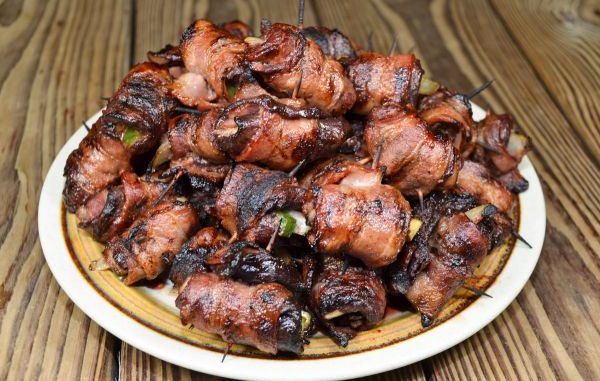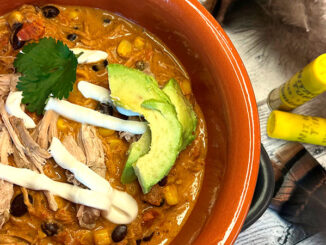
Ducks and geese have to be the most difficult of all game animals to cook. They have a reputation for being strong and gamey — almost “livery” in taste.
On top of that, duck and goose breasts are very lean and dry.
Unfortunately, all too many duck hunters try to give away as much of their kill as possible rather than eat it themselves.
Pat Attaway’s recipe solves all of these problems.
He said he saw other hunters cook duck breasts rolled in bacon and, being ever the inventor, felt he could come up with a better recipe.
“A lot of the ones I tried had jalapeño pepper in them,” he said. They were good, but I’m just not a big jalapeño fan. To make my own marinade, I knew I needed an oil and I knew I needed an acid. I really like balsamic vinegar because it has a sweet quality to it.
“I wanted something sweet, so there’s the honey, and I wanted to ensure smokiness so I added liquid smoke.”
Pat’s Barbecued Duck is ideal camp food. It’s simple, and it uses some of the hunters’ harvest. Attaway swears that it is better at the camp because the ducks have never been frozen.
But he also cooks it at home for parties and events every chance he gets.
“People who don’t eat ducks will enjoy it if you don’t tell them that it’s duck,” he said. “I cooked a large pile of them for my neighbors. One of the wives was absolutely enjoying them, eating one after another. Then we told her what it was. She was amazed — and she wouldn’t eat any more.”
John Dupuis echoed his hunting partner’s comments.
“I call them ‘Duck Brochette,’” Dupuis said. “People who say ducks are nasty will continue to eat it — if they taste it. When you put that in your mouth — that is the best bite you’ll ever get.”
A couple of tips: First, Pat insists that Oscar Meyer bacon be used, claiming it is the only brand that offers consistent slices he can depend upon. Since he judges the doneness of the ducks by how well the bacon is done, he always uses regular-sliced bacon; with thin-sliced bacon, the bacon will be done but the duck will still be too raw to eat. Thick-sliced bacon produces the opposite and equally unsatisfying result.
Second, this recipe is for large ducks, but any size or species of duck can be used, even teal. Simply adjust the number of birds needed based on their size.
This is an excellent way to cook snow geese, a challenging species to cook. One breast can make a lot of rolls.
Barbequed Duck
- 4 large ducks (mallards or canvasbacks), breasted
- 1 pint olive oil
- 3/4 cup balsamic vinegar
- 1/2 cup honey
- 1 tsp. liquid smoke
- 2 tsp. Creole seasoning
- 1 medium bell pepper, slivered and halved
- 1 medium onion, slivered
- 1 lb. Oscar Meyer regular-sliced bacon, each slice halved.
- 1 small box of round, wooden toothpicks
- Butterfly each duck breast half into two pieces. Cut each piece in half crossways, so each original breast half produces four pieces. Put in a gallon plastic zipper bag and set aside.
- Mix olive oil, vinegar, honey, liquid smoke and Creole seasoning, and add to duck breasts in bag. Knead the bag to mix the marinade and breasts thoroughly, and refrigerate 12 to 24 hours.
- Place a slice of bacon on a flat surface. On top of that, nearer one end than the other, place a piece of marinated breast. On top of that put one sliver of bell pepper and one sliver of onion. As tightly as possible, roll up the breast and vegetables, beginning on the end of the bacon with the duck breast on it. Pin the roll together securely with a toothpick. Use two toothpicks if necessary.
- Build a medium-hot fire in a barbecue pit. Place the rolled breasts directly over the coals, and turn them as necessary to keep them from burning. When the bacon is cooked through, the duck breasts are done.
Serves 4.


